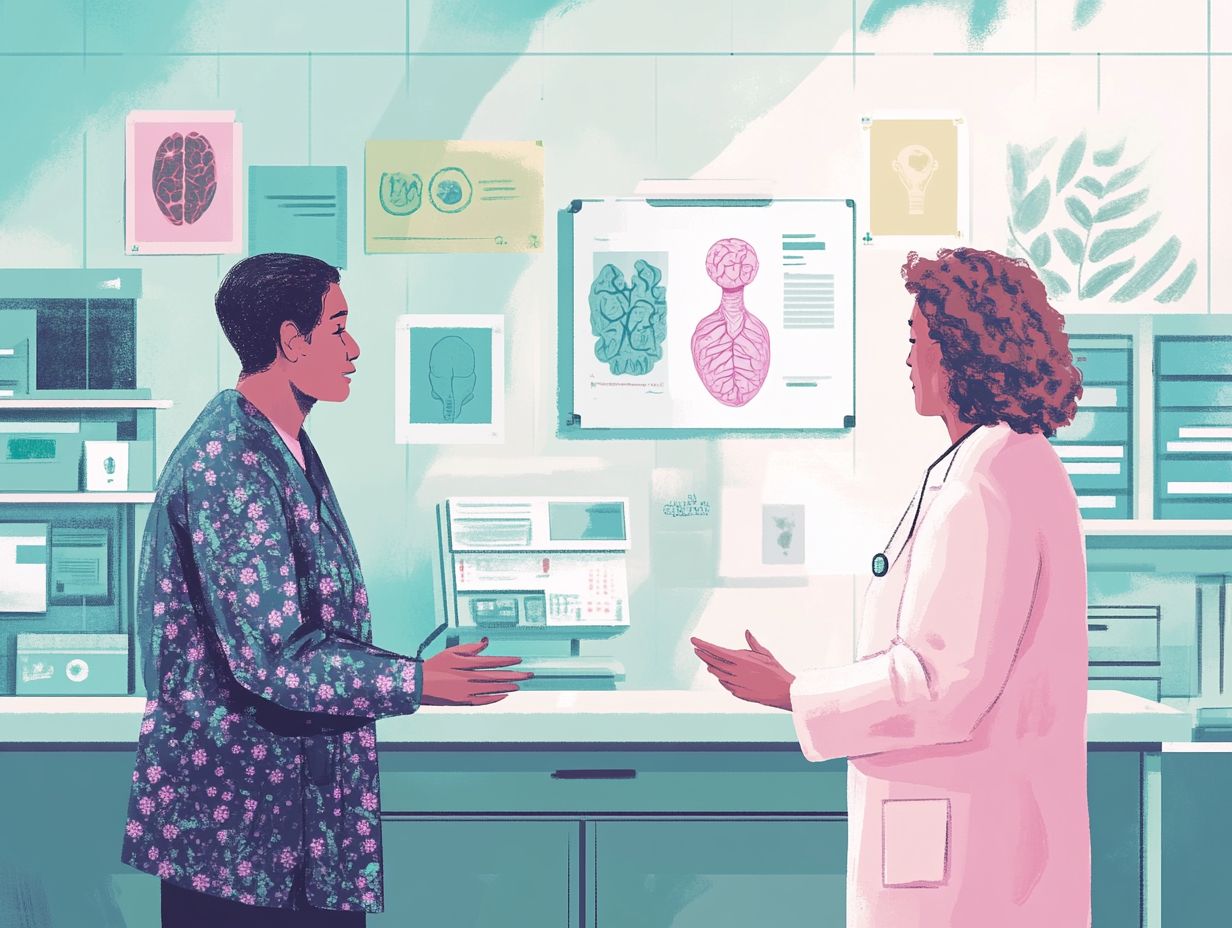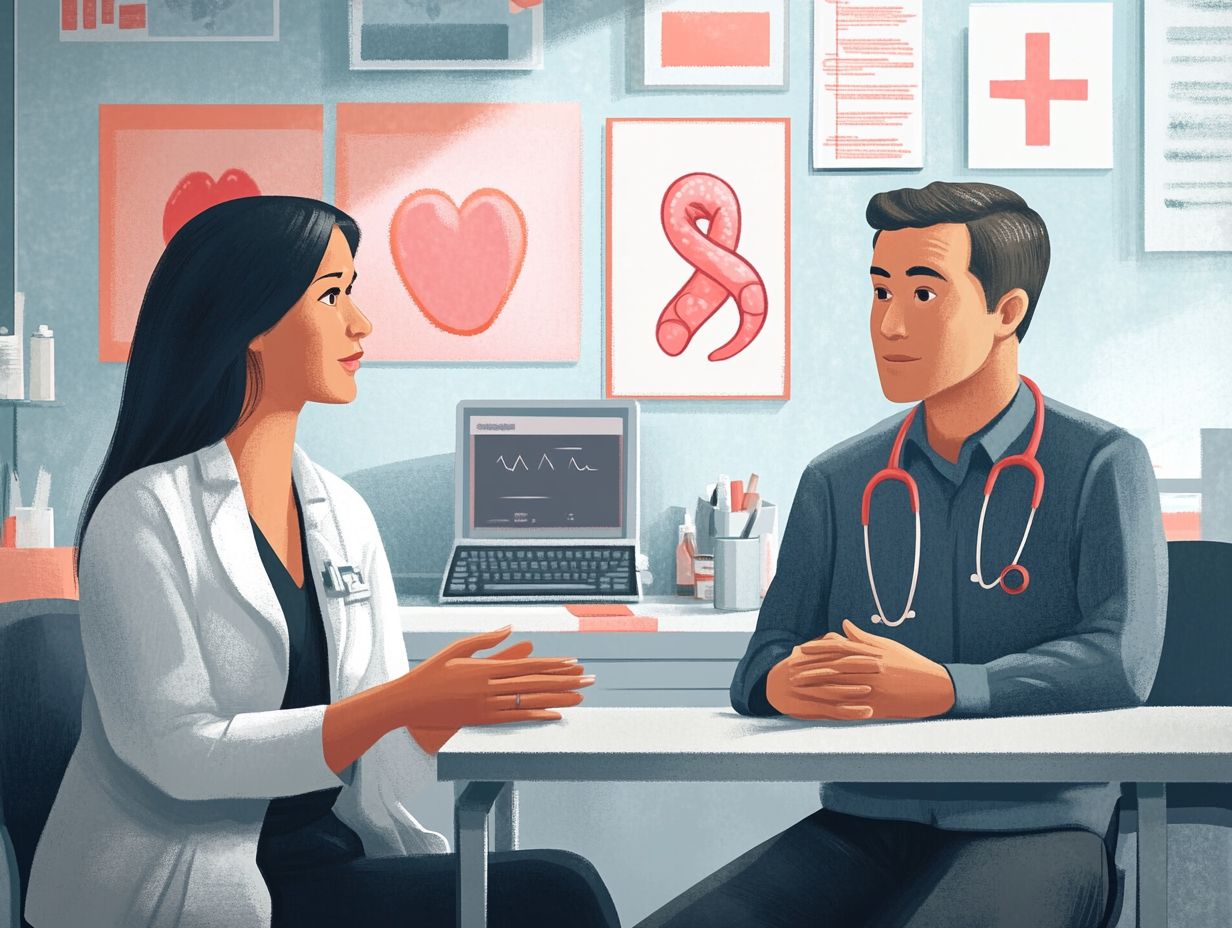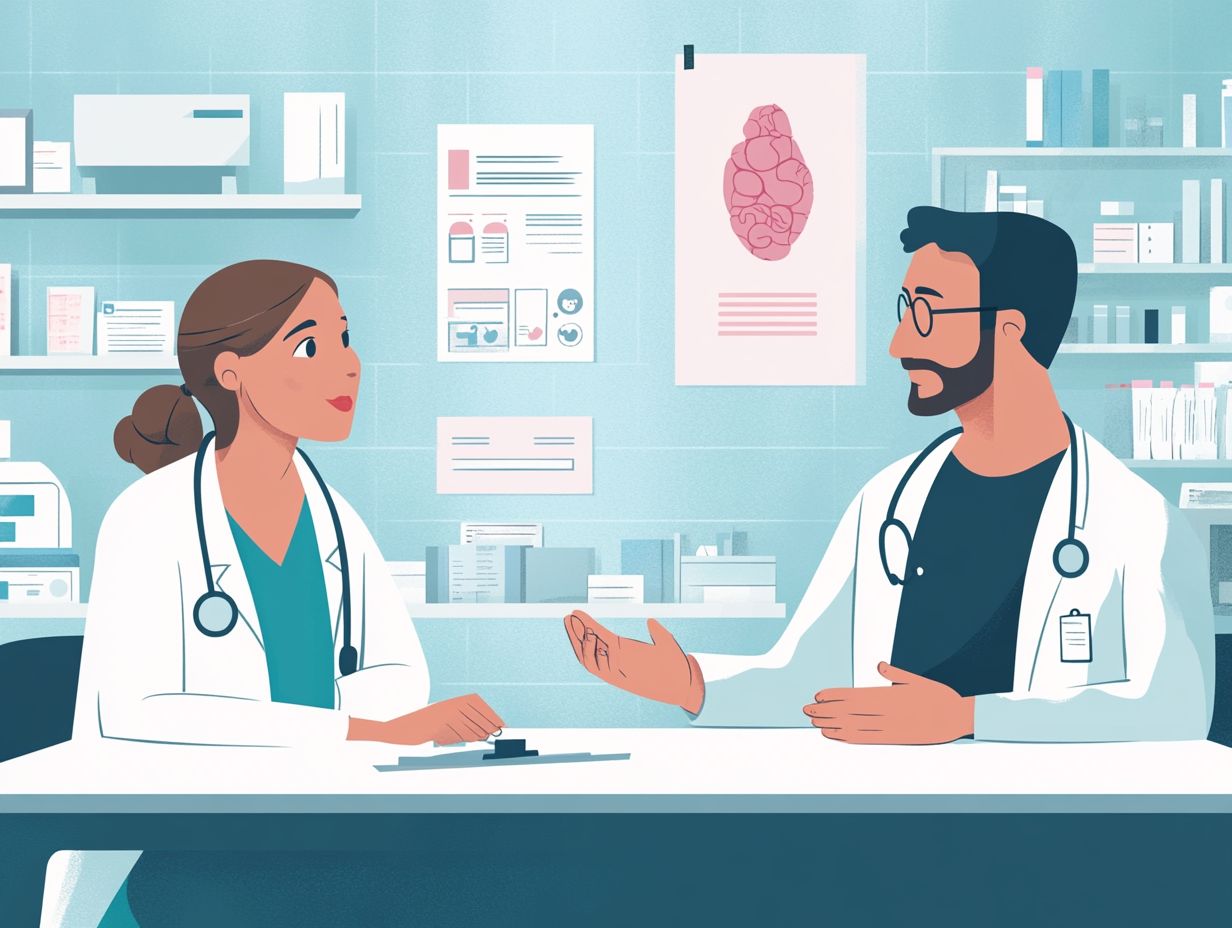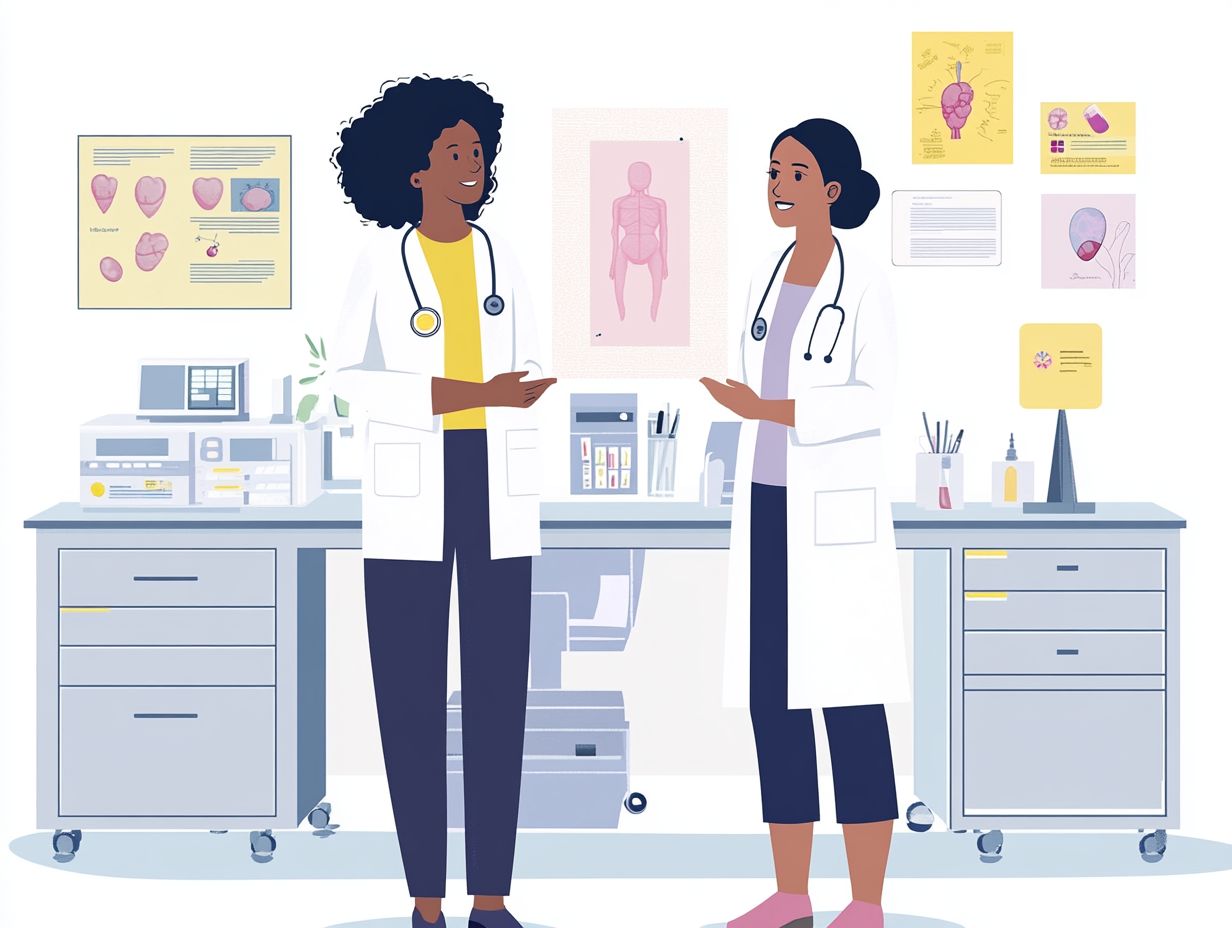Cancer prevention through regular health check-ups and cancer screenings is a vital strategy for early detection and improved treatment outcomes. Understanding cancer’s causes, including genetic, environmental, and lifestyle factors, enables individuals to take proactive measures against this disease, potentially preventing advanced cancer.
Regular screenings, recommended by health organizations such as the American Cancer Society, play a crucial role in identifying cancers like breast cancer, cervical cancer, and colorectal cancer at an early stage, enhancing the chances of successful treatment and reducing mortality.
Early detection through screening tests such as mammography and colonoscopy significantly increases survival rates and provides more effective treatment options. Personalized screening plans, based on individual risk factors, are essential, with healthcare providers guiding recommended tests and frequency, considering the risks and benefits of each test.
Complementing regular health check-ups with lifestyle changes, such as a healthy diet, regular exercise, and avoiding harmful substances, further reduces cancer risk and aids in cancer prevention.
Overcoming barriers to regular screenings ensures timely intervention, underscoring the importance of routine health check-ups for cancer prevention. Screening tests for lung cancer and prostate cancer, like the PSA test and CT scan, are crucial in this effort.
Key Takeaways:
Understanding Cancer and its Causes, Including Breast Cancer, Cervical Cancer, and Prostate Cancer

Cancer is a disease characterized by uncontrolled cell growth.
Cancer causes include genetic predispositions, environmental exposures, lifestyle choices, and certain infections.
Understanding these causes aids in developing prevention and treatment strategies, including the use of tumor markers like CA-125 for ovarian cancer and BRCA1 and BRCA2 for breast and ovarian cancers.
What is Cancer and How Does it Develop?
Cancer is a disease where cells in the body grow uncontrollably.
Cancer develops when genetic mutations disrupt normal cell regulation, causing unrestrained cell proliferation.
Mutations may be inherited or acquired from environmental factors like carcinogens or radiation.
The Role of Regular Check-ups and Cancer Screenings in Cancer Prevention
Regular health check-ups and cancer screenings play a crucial role in cancer prevention by enabling early detection of cancer, improving treatment outcomes, and increasing survival rates. Expert groups often recommend these screenings as part of a broader cancer prevention strategy.
Organizations like the American Cancer Society recommend routine cancer screenings, such as mammography, Pap tests, and colonoscopies, based on age, family history, and lifestyle.
Screening tests for cancers such as breast, cervical, colorectal, lung, and prostate are included in regular check-ups.
Regular health check-ups allow patients to manage their health proactively and reduce cancer risks.
Why Early Detection is Key
Early detection of cancer is crucial because it increases the chances of successful treatment and improves survival rates.
Detecting cancer in its early stages allows for more effective treatment options and reduces mortality rates.
Screening programs like mammography and colonoscopy aid in early detection and intervention.
Common Types of Cancer Screenings

Common types of cancer screenings include tests for various cancers such as breast, cervical, colorectal, and prostate. These screenings are essential for early detection and prevention of advanced cancer:
- Mammography for breast cancer
- Pap tests for cervical cancer
- Colonoscopies for colorectal cancer
- Chest X-rays or CT scans for lung cancer and abdominal ultrasound for liver cancer
- PSA tests for prostate cancer
Cancer screenings detect cancers early, increasing treatment success rates.
Recommended Tests and Frequency
Recommended tests and frequency for cancer screenings vary by cancer type and individual risk factors. Consultation with healthcare providers is essential for personalized screening plans.
Breast Cancer: Individuals with a family history should begin mammograms earlier than the general population.
Colorectal Cancer: Routine colonoscopies typically start at age 45, but those with risk factors, like inflammatory bowel disease, may need to start sooner.
Prostate Cancer: Men should consider PSA testing based on personal or family history.
Early detection is crucial for improving treatment outcomes.
Other Cancer Prevention Strategies
Cancer prevention strategies include lifestyle changes like adopting a healthy diet, engaging in regular physical activity, avoiding tobacco, and limiting alcohol consumption.
These strategies can significantly reduce cancer risk and complement regular screenings.
Health services provide resources to support these lifestyle changes.
Lifestyle Changes and Risk Reduction
Lifestyle changes reduce cancer risk by promoting a balanced diet, regular physical activity, and avoiding harmful substances.
A balanced diet includes fruits, vegetables, whole grains, and lean proteins, reducing cancer risk through essential nutrients.
Regular exercise supports healthy weight management and overall health, lowering cancer risk.
Avoiding tobacco and limiting alcohol are critical for reducing cancer risk, as they are major risk factors.
Overcoming Barriers to Regular Check-ups

Overcoming barriers to regular check-ups is crucial for cancer prevention and early detection.
Common barriers include:
- Fear of diagnosis
- Lack of time
- Financial constraints
To overcome these barriers, individuals can:
- Seek support from healthcare providers
- Utilize flexible scheduling options
- Explore financial assistance programs
Regular health check-ups and cancer screenings ensure timely intervention and better health outcomes, including the detection of potential cancer diagnosis in its early stages.
Addressing Common Concerns and Excuses
Regular health check-ups and cancer screenings are crucial for cancer prevention because many cancers develop without symptoms. Common concerns about check-ups include discomfort and inconvenience, but regular screenings can detect cancer early when treatment is most successful, offering peace of mind. Ignoring routine screenings based on general health or family history is risky. Proactive check-ups and consultations with a healthcare provider enable individuals with knowledge for better health outcomes, addressing concerns through test results and expert guidance.
Frequently Asked Questions
What is cancer prevention?
Cancer prevention involves taking measures to reduce the risk of developing cancer. This can include lifestyle changes, regular screenings, and avoiding exposure to known cancer-causing substances.
How important are regular check-ups in cancer prevention?

Regular check-ups are crucial in cancer prevention as they allow for early detection and treatment of any potential cancerous cells. This can greatly increase the chances of successful treatment and recovery.
What types of cancer can be prevented through regular check-ups?
Regular check-ups can help prevent various types of cancer, including breast, colon, cervical, skin, and prostate cancer.
How often should someone get a cancer check-up?
The frequency of cancer check-ups can vary depending on age, personal risk factors, and family history. It is recommended to discuss with a healthcare provider to determine the appropriate schedule.
Are regular check-ups only important for those with a family history of cancer?
No, regular check-ups are important for everyone, regardless of family history. Many types of cancer can occur without a known family history, making screenings and early detection crucial for prevention.
What are the benefits of regular check-ups in cancer prevention?
The benefits of regular check-ups in cancer prevention include early detection and treatment, peace of mind, and the possibility of preventing cancer before it develops or spreads.





